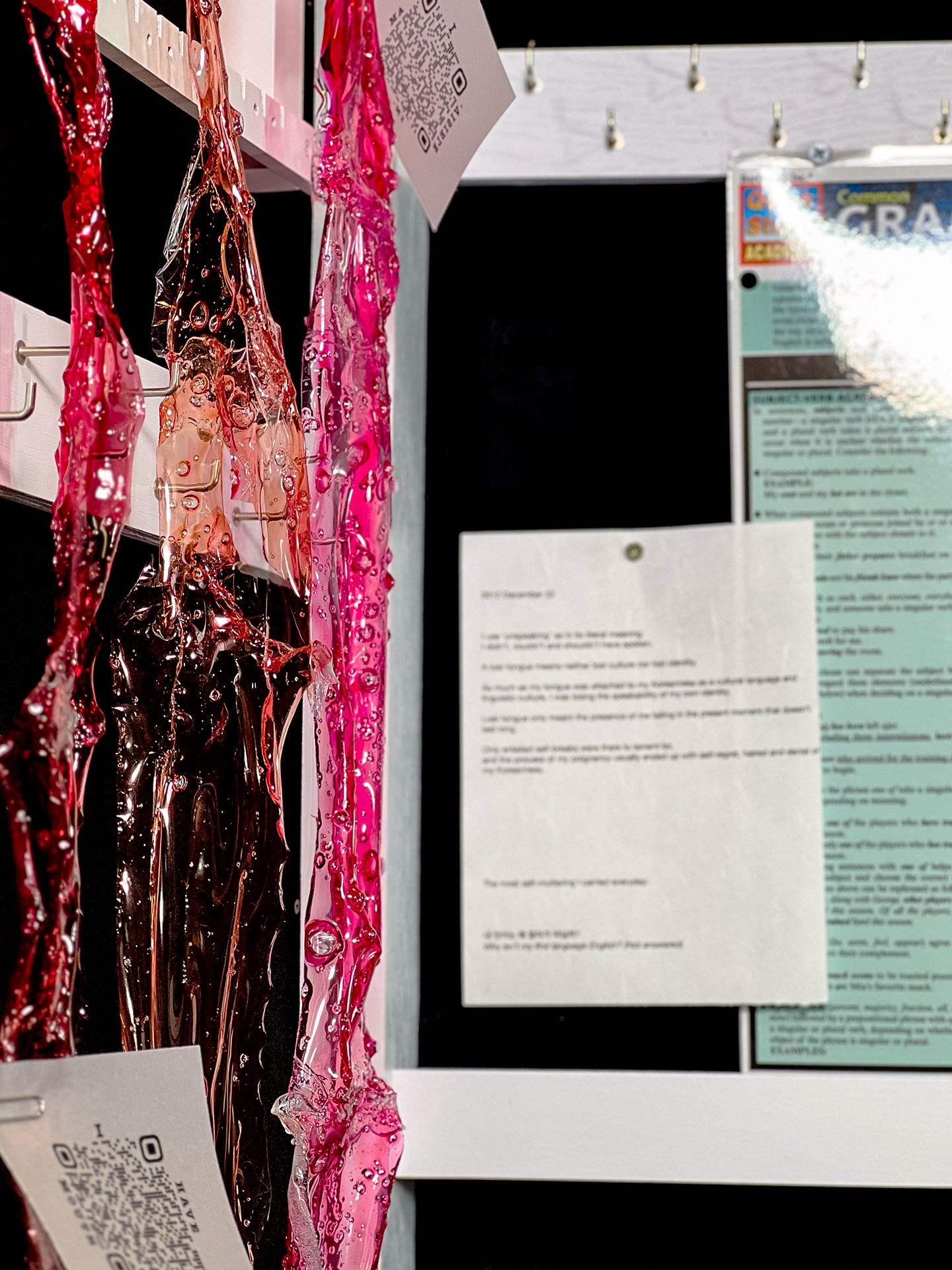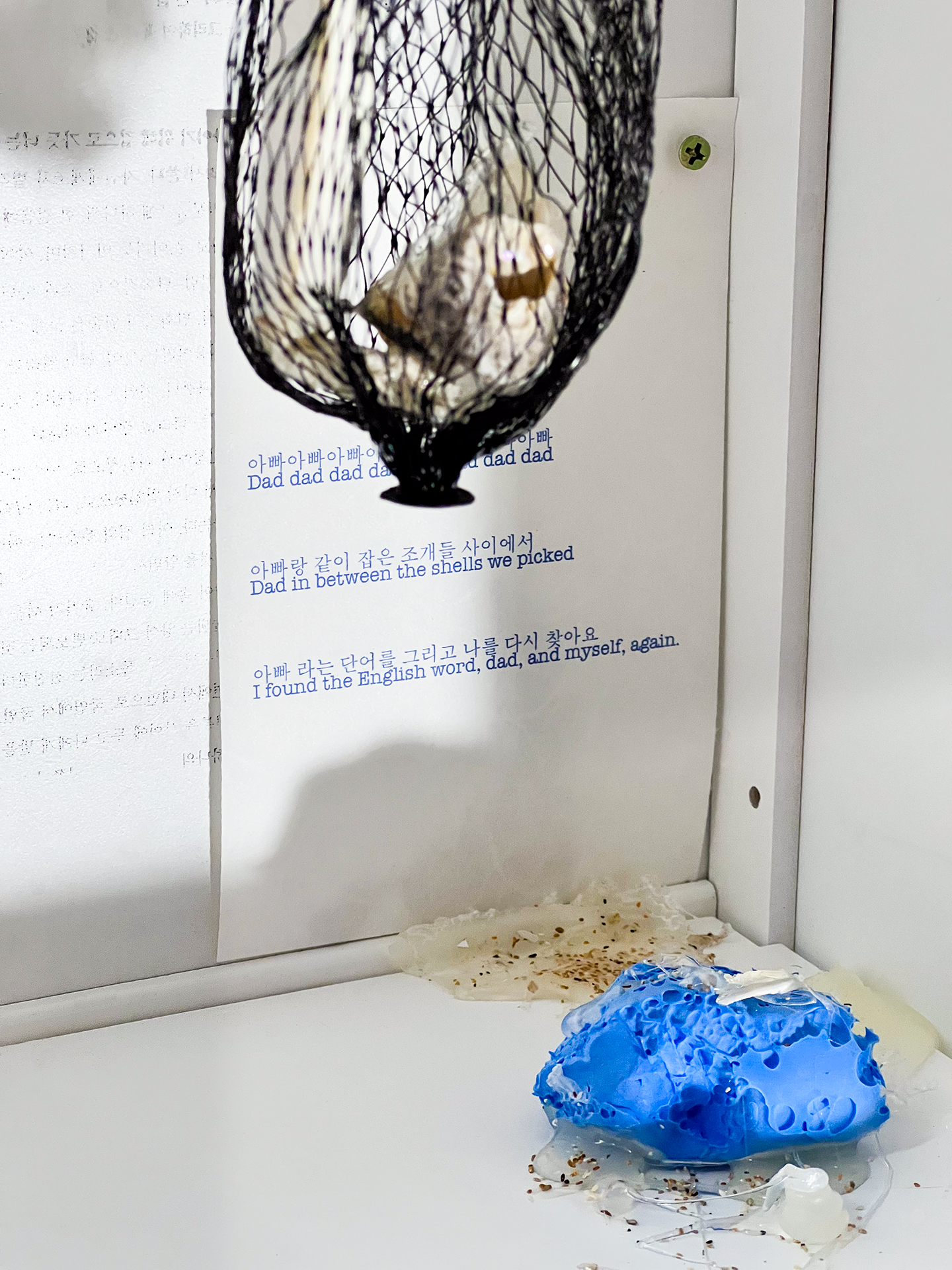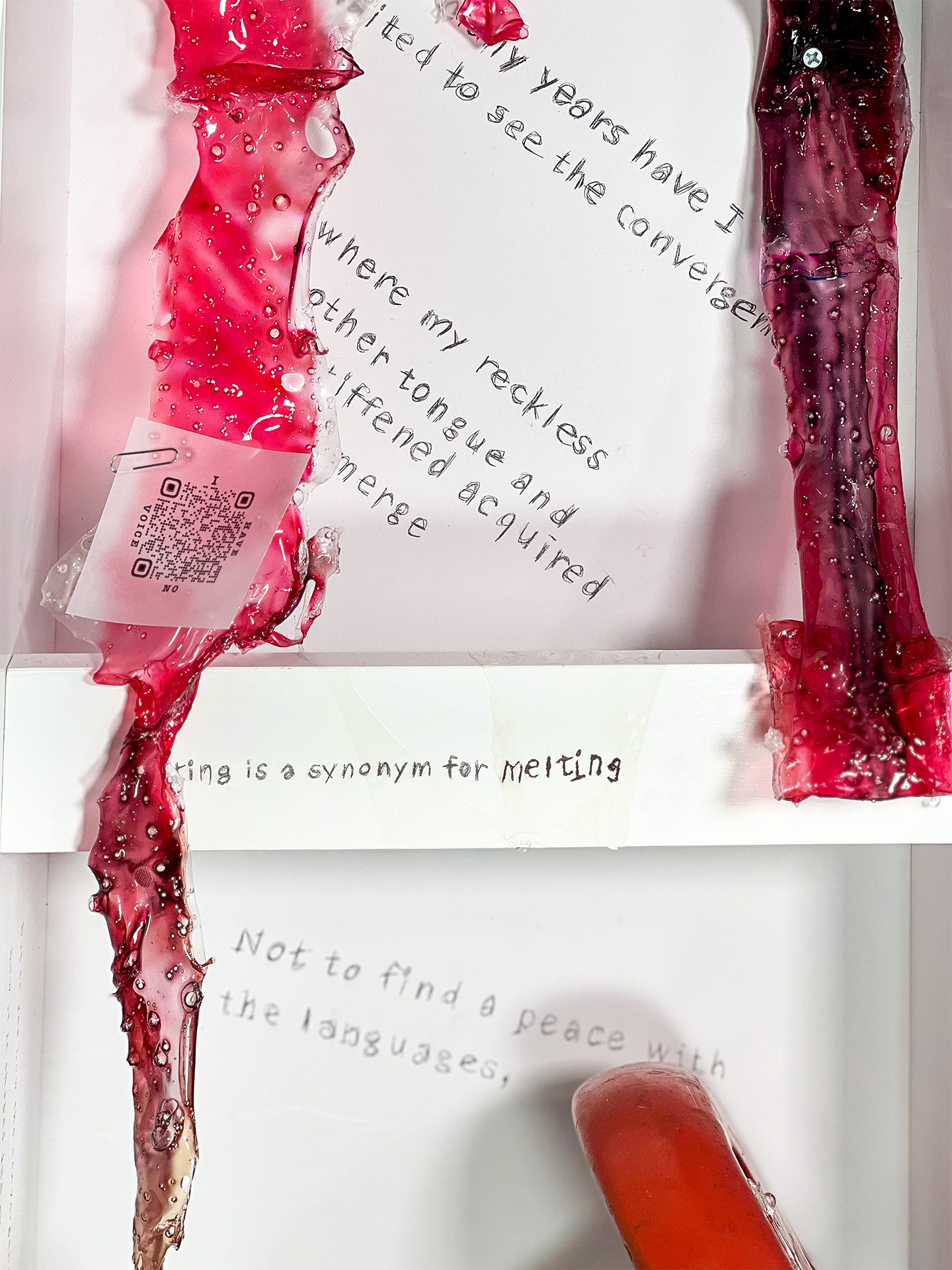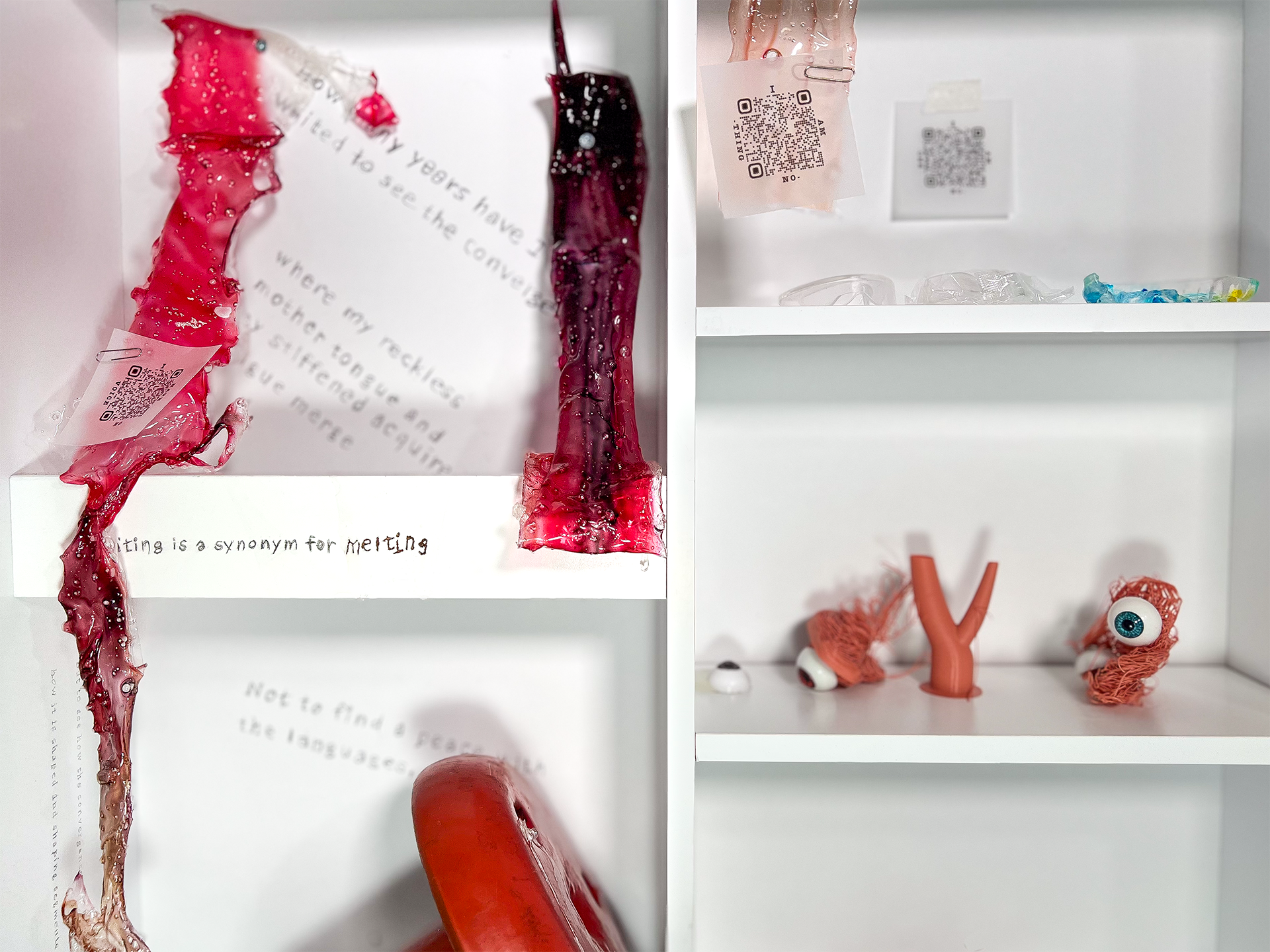Indication of Melancholy Speech
2020-2022 & 2023. Three cabinets, evaporative slime “tongues,” a series of auto-biographical prose, collected objects, music box scorings, prints of QR codes. Variable dimensions.
Partially funded by the Ontario Arts Council & the Canada Council for the Arts.
The music scorings accessable through the printed QR codes.
Exhibition:
Centre Clark, Montreal, Canada. September 8 - 7 October 2023.
When your tongue stutters, you feel an uneasy rambling at its tip, something that is hard for others to notice, but that you realize is growing more and more. A melancholy lingers, born from that experience, as an indication that you have words eager to be spoken, yet always followed by hesitation and self-protective mechanisms. The rugged journey through which the words slowly and uncomfortably come out of your mouth may ease you or leave you with a certain aftertaste. The aftertaste is tangled in politics, the colonial history of the “global” languages and the binary norms delineating “perfect” and “flawed” utterances.
Indication of Melancholy Speech unfolds through various components — music box scorings, the riddles the artist wrote while confronting social irony about her stuttering tongue in her later acquired language, excerpts of her journal and particular collected objects. The journal is a series of long-term growing prose through which the artist commemorates her fading mother tongue while realizing that her speech anxiety comes from the socially prevailing superiority of language hierarchies. The collection of objects appears in the journal excerpts as metaphorical indications to commemorate the traumatized “tongue”.
All the components are unified through the thirteen QR codes through which the audience can access the pre-recordings of the music box scores. The scores were generated by the artist's pronunciation, who read aloud sentences detected as unsuccessful pronunciations by the most dominant English dictionary used in South Korea. These unsuccessful utterances become another form of language; a language of aphasic tongues, an ironic yet beautiful polyphony born of the discordant sounds of the music box notes.




